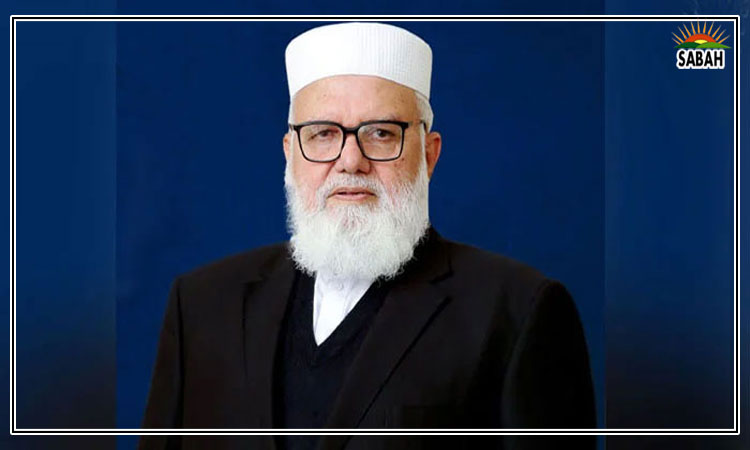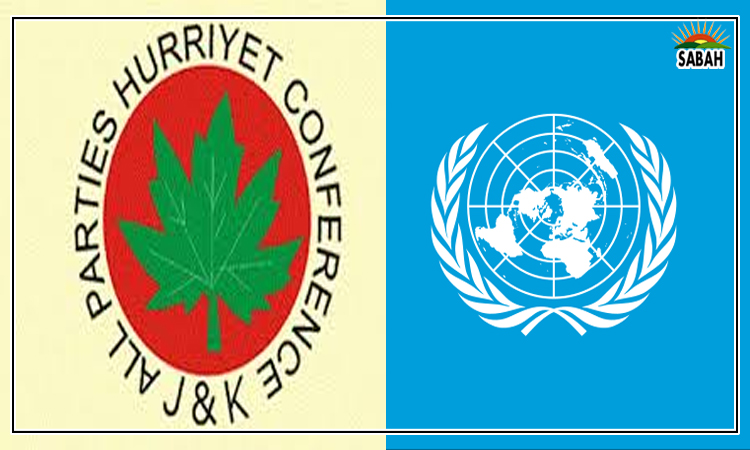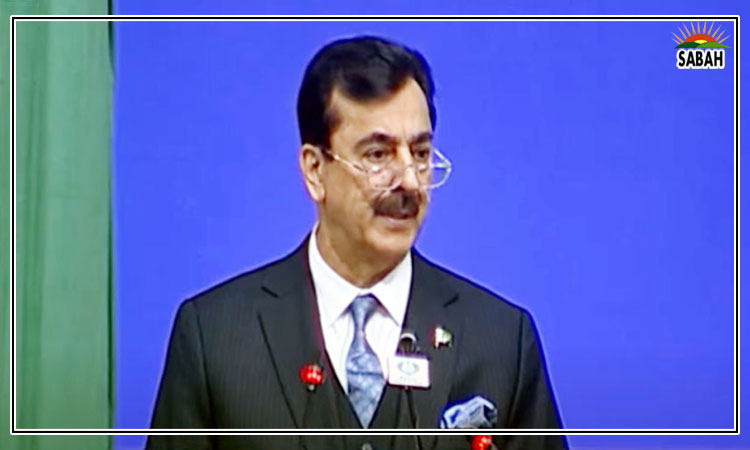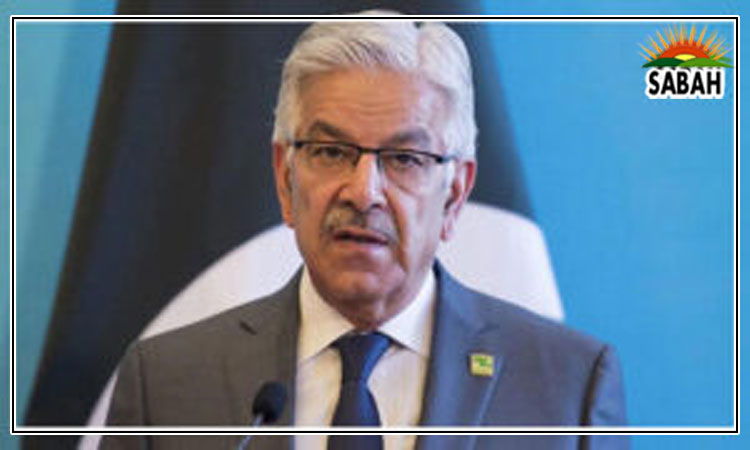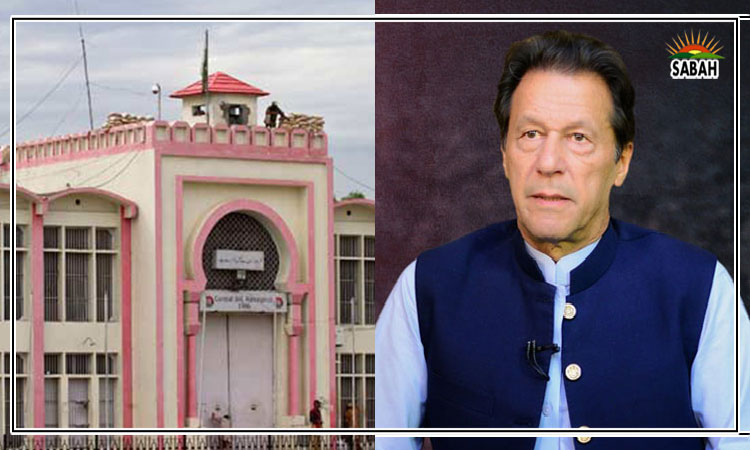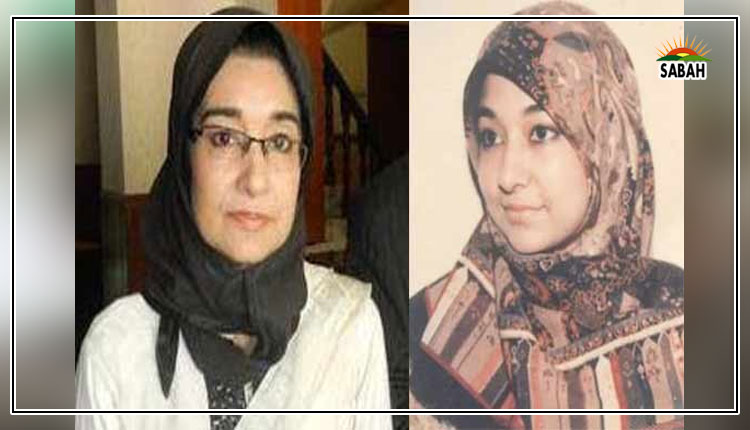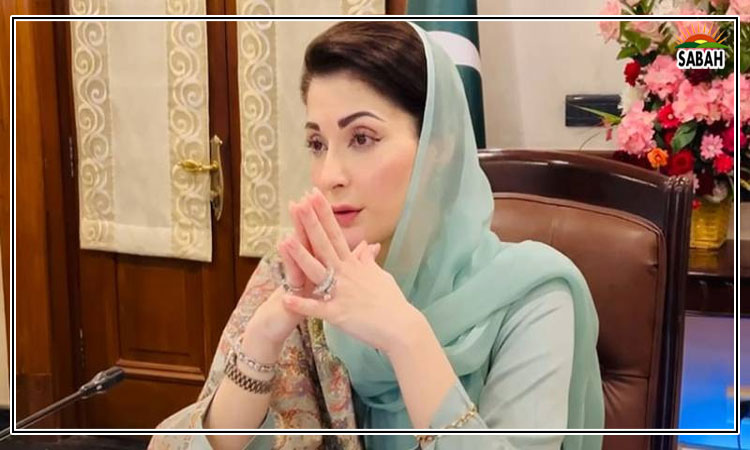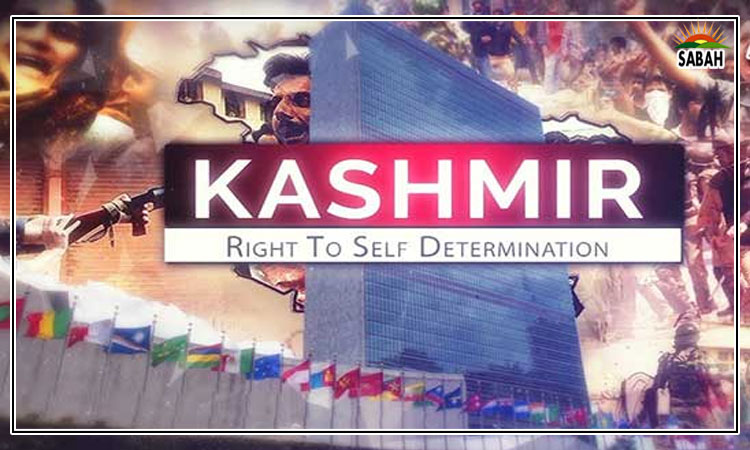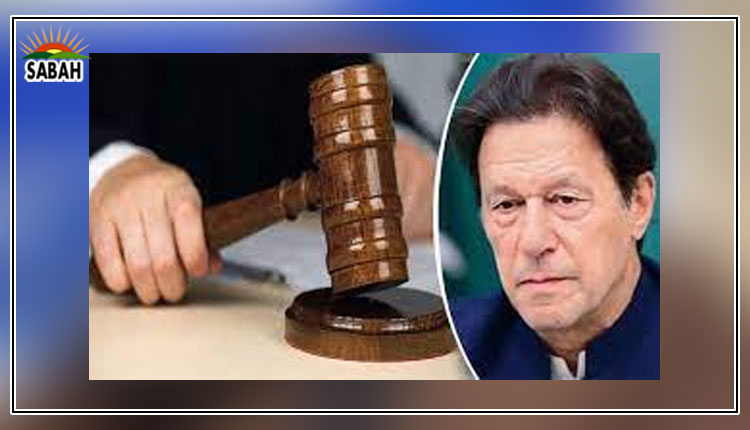Islamabad ATC Judge Raja Jawad Abbas Hassan rejects Imran Khan’s bail in ECP protest case
ISLAMABAD, Feb 15 (SABAH): An Islamabad Anti-Terrorism Court (ATC) rejected on Wednesday Pakistan Tehreek-e-Insaf Chairman and former prime minister Imran Khan’s request for an extension in his interim bail. The plea was made in a case pertaining to a protest outside the Election Commission of Pakistan (ECP) following its decision in the Toshakhana case.
The verdict was announced by ATC Judge Raja Jawad Abbas Hassan on the grounds of non-appearance in court.
Earlier on Wednesday, the court rejected Imran Khan’s request for exemption from appearance on medical grounds. “Imran Khan should appear in court by 1:30pm,” the ATC judge said in an order announced at 1:20pm.
The PTI chief has been convalescing in his Zaman Park residence in Lahore ever since he was wounded in an assassination attempt during a pitstop his caravan made in Wazirabad while they were marching on Islamabad.
During Wednesday’s hearing, Imran Khan’s lawyer Dr. Zaheeruddin Babar Awan told the court that Imran Khan tried to travel to Islamabad but could not.
Previously, the court had granted the PTI chief the last opportunity to appear on Feb 15.
The case was filed against Imran Khan after PTI workers took to the streets and held demonstrations outside ECP offices across the country.
The reference alleging that Imran Khan had not shared details of the gifts he retained from the Toshaskhana and proceeds from their reported sales was filed by lawmakers from the ruling coalition last year. On October 21, the electoral body had concluded that the former premier had indeed made “false statements and incorrect declarations” regarding the gifts.
The Toshakhana is a department under the Cabinet Division that stores gifts given to rulers and government officials by heads of other governments and foreign dignitaries. According to Toshakhana rules, gifts/presents and other such materials received by persons to whom these rules apply shall be reported to the Cabinet Division.
The watchdog’s order had said Imran Khan stood disqualified under Article 63(1)(p) of the Constitution. Soon after the verdict was announced, the PTI leadership had asked people to take to the streets.
At the outset of the ATC hearing on Wednesday, Imran’s lawyer Babar Awan said that he wanted to present some arguments in the case and then proceeded to read out the FIR registered against his client.
“The case against Imran was registered on the violation of Section 144,” he pointed out, arguing that in the view of the ATC, this was not a terrorism case.
“The court has already approved bails of other persons named in the case,” Awan contended. He requested that terrorism charges from the FIR should be removed.
At that, the judge said that the court was currently hearing Imran’s bail plea.
“Is the violation of Section 144 also punishable?” Imran’s lawyer asked here, adding that the additional sessions judge had granted Imran interim bail till Feb 27.
“I request the court to extend my client’s bail till then as well. Imran tried to travel but he couldn’t,” he said.
Awan went on to say that Imran “has never run away from court or the country” and appealed for a last chance. “I am ready to submit surety bonds worth Rs10,000.”
The lawyer then requested the court for time to consult Imran regarding the matter after which the hearing was adjourned.
During the hearing, the PTI chief’s lawyer Babar Awan argued that terrorism related sections were wrongly added in the case, adding that the court could give its findings at any time. “If court issues it findings, the case will be referred to the other court,” he said.
To which, the judge remarked how he could hear a case on merit when the suspect was reluctant to appear before the court. He said the ongoing case was related to Imran Khan’s bail. “I will treat an influential person and a common man equally,” Judge Jawad Abbas commented.
Babar Awan pleaded the court to extend the bail till Feb 27, adding that the PTI chief tried to travel for hearing but he couldn’t. He said he was ready to withdraw the bail petition if terrorism section was omitted in the case.
The judge remarked, “You can take back the petition at any time and there is also an option to get a protective bail from the Lahore High Court”. After hearing arguments, the judge granted him time till 2:30pm to decide either he will take back the bail petition or court will decide on it. After a short break, the court resumed hearing and rejected Imran Khan’s bail plea.
The PTI chief was granted an interim bail more than four months ago. As per the rule, the suspect has to appear before the court in personal capacity until he is on the interim bail.
Meanwhile, Islamabad High Court (IHC) has ordered the banking court not to issue its verdict on the bail plea of PTI Chief Imran Khan till February 22.
The court had asked Khan to appear before it in the prohibited funding case by 3:30pm at the expiry of his bail on Wednesday; however, the former prime minister challenged the order in the high court.
A two-member bench, comprising Justice Mohsin Akhtar Kayani and Justice Tariq Mehmood Jahangiri, heard the PTI chief’s plea.
During the hearing, Imran Khan’s lawyer Barrister Salman Safdar told the bench that the banking court had granted interim bail on October 17. He added that on November 3 the PTI chief was shot at during the long march in Wazirabad.
“Exemption was requested six times after the incident and 2 times before the incident,” said Khan’s lawyer. He added that his client never shied away from appearing in courts, adding that the medical grounds and facts were before everyone.
The court, after hearing the arguments, issued a stay order and barred the banking court till February 22 from issuing verdict in this regard. The bench also asked the counsel to submit a fresh medical report of the PTI chief at the next hearing.
Earlier on Wednesday, when the banking court judge Rakhshanda Shaheen arrived at the court she directed the officials to empty the room as there were a lot of people present. The judge then ordered a break so the courtroom could be emptied.
When the hearing resumed, Khan’s lawyer Barrister Salman Safdar started his arguments on the extension of the PTI chief’s interim bail for three weeks.
The lawyer told the judge that his client was over 70 years but was fit as he exercised regularly. He added that it takes three months for a young person to recover in case of a bullet injury.
Safdar also shared that his client was also exempted from appearing for biometric verification due to his old age. He then urged the court to grant the former prime minister exemption from appearing in the case for three more weeks.
The lawyer also shared the x-rays of the PTI chief. “We are only asking for three weeks so he can stand without support. If our plea is not heard then it must be written that our medical [assessment] is not correct,” said Safdar. He also added that the court must also write that the PTI chief was not hit.
The lawyer, before wrapping up his arguments, also informed the court that his client was not present in Islamabad at the moment.
Once Khan’s lawyer wrapped up his arguments, co-accused Tariq Shafi’s lawyer Mian Ali Ashfaq came to the rostrum.
Ashfaq contended that a criminal case cannot be filed in the prohibited funding case.
“Even if the first information report (FIR) is admitted there will be no conviction,” claimed Ashfaq. He also asked if there was any statement or document which pointed out that the funds were prohibited.
He argued that a mosque is not bound to ask its donors about their source of income.
The counsel added that even if Abraaj founder Arif Naqvi committed a crime then how can the party that collected the funds be declared criminal?
“It is alleged that the crime was committed by Arif Naqvi abroad. Arif Naqvi has been sentenced there, so what are we doing here?” asked the lawyer. He also claimed that the Federal Investigation Agency was hiding facts.
Shafi’s lawyer asked how his client, Imran Khan and Amir Kayani were at fault if Naqvi defaulted abroad.
At this point, Judge Shaheen intervened and told the lawyer that he was giving incorrect arguments as the case was only related to bail.
“I am not giving any observation, this is only a case of bail,” said the judge.
After the arguments of the counsels of the PTI chief and co-accused were wrapped up, special prosecutor Raja Rizwan Abbasi presented his arguments.
Abbasi said that it was contended in court that no one is questioned if they give funds to a mosque. “It only happens in Pakistan and not in the United Arab Emirates.”
After all the lawyers had spoken, the judge ordered Khan to appear in court by today.
“If Imran Khan does not appear then the law will take its course,” judge Shaheen had warned.
Last year, the ECP had issued its verdict in the prohibited funding case — previously referred to as the foreign funding case — against the PTI, which stated that the party did indeed receive prohibited funding.
In the verdict, the commission noted that the party “knowingly and willfully” received funding from Wootton Cricket Limited, operated by business tycoon Arif Naqvi. The party was a “willing recipient” of prohibited money of $2,121,500, it said.
The ECP said that the party “knowingly and willfully” also received donations from Bristol Engineering Services (a UAE-based company), E-Planet Trustees (a Cayman Islands private registered company), SS Marketing Manchester (a UK-based private company), PTI USA LLC-6160 and PTI USA LLC-5975 which were “hit by prohibition and in violation of Pakistani laws”.
Subsequently, the Federal Investigation Agency (FIA) had registered a case naming Imran, Sardar Azhar Tariq Khan, Saifullah Khan Nyazee, Syed Yunus Ali Raza, Aamer Mehmood Kiani, Tariq Rahim Sheikh, Tariq Shafi, Faisal Maqbool Shaikh, Hamid Zaman and Manzoor Ahmad Chaudhary as signatories/beneficiaries of the PTI account in question.
At the previous hearing, the banking court had rejected the former premier’s request for a virtual hearing and instructed him to appear in person on Feb 15. Imran had then approached the Islamabad High Court with a request for virtual proceedings.
During the hearing on Wednesday, the court once again rejected Imran’s exemption request and instructed him to appear before the judge in person today.
“Imran Khan should appear in the court before 3:30pm today,” Special Judge Banking Court Rakhshanda Shaheen said. “If he fails to do so, the law will take its course,” she added.
At the outset of the proceedings, Imran’s lawyer Barrister Salman Safdar submitted a request in court seeking an exemption from an in-person hearing. He said that a similar petition had been filed in the IHC as well.
“I have medical evidence to back my request,” he said. “If you [the court] accept my request, I won’t go to the high court.”
At that, the judge observed that the PTI had appealed the banking court’s order. “You have challenged my order … you should definitely go to the high court,” Judge Shaheeb said. Subsequently, Safdar began presenting his arguments in the case.
“I will put forward a brief request. I don’t want to step into the high court against you. I want you to listen to us here with an open mind,” he said.
He stated that Imran Khan was more than 70 years old. “He is fit because of regular exercise but he is above 70 years.
“Even if a youngster is shot, it takes them more than three months for recovery … Imran has even been exempted from biometric verification because of his age,” the lawyer argued and requested the court to grant his client a three-week exemption from an in-person appearance. Safdar also submitted the PTI chief’s x-rays in court.
“Now that we all are becoming doctors, you can check these reports. We are just asking for three weeks so that Imran can stand without support.”
He added that if the court was not willing to listen to his request, then it had to write that Imran’s medical reports were incorrect. “It should also be written that Imran was not shot.”
Here, the judge asked if the IHC had issued any orders pertaining to the request yet to which FIA special prosecutor Rizwan Abbasi said that no such order had been released. “In fact, an objection was raised on their petition,” he said.
The prosecutor, while presenting his arguments, contended why Imran had never visited a government hospital.
“Imran Khan does not have any serious problems. It is just a minor sprain and inflammation in his leg,” he said, adding that an exemption from an in-person hearing could not be granted on these grounds.


